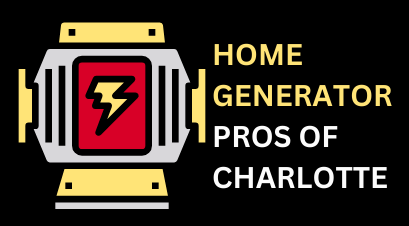Whole House Generators in Homestead NC
A whole house generator is a backup power system designed to supply electricity to your entire home during a power outage. Unlike portable generators that might only power a few essential appliances, a whole house generator is integrated into your home’s electrical system and is capable of handling all your electrical needs. It automatically starts when the power goes out and shuts off when power is restored, ensuring your home remains comfortable and functional.
Why Having a Generator Is Essential for Homes
Having a whole house generator is crucial for several reasons. First and foremost, it provides peace of mind by ensuring that you are never without power during outages. This can be especially important for those who rely on medical equipment, have significant food storage needs, or simply wish to maintain their home’s comfort and security. With a whole house generator, you won’t have to worry about spoiled food, burst pipes, or disrupted daily routines.
Examples of Situations Where It Is Crucial
Consider the impact of a severe storm that causes a power outage lasting several days. Without a whole house generator, your home might face issues like frozen pipes, spoiled food, and an uncomfortable living environment. Similarly, during extended power outages caused by natural disasters or other emergencies, a whole house generator ensures that you can maintain heating or cooling, keep essential appliances running, and stay connected.

Factors to Consider When Choosing a Whole House Generator
When selecting a whole house generator, consider the following factors:
- Power Requirements: Determine how much power you need based on the size of your home and the number of appliances you want to support.
- Fuel Type: Generators can run on natural gas, propane, or diesel. Choose a fuel type that suits your availability and preference.
- Installation Space: Ensure you have enough space for the generator and its components, and that the location complies with local codes and regulations.
- Noise Level: Some generators are quieter than others. Consider the noise level if you have specific preferences or live in a noise-sensitive area.
- Budget: Whole house generators come in a range of prices. Balance your budget with the features and power capacity you need.
How It Works
A whole house generator operates by continuously monitoring the power supply to your home. When it detects a power outage, it automatically starts up and switches the power source from the utility to the generator. This transition is seamless and typically occurs within seconds, so you won’t experience any interruption in power. Once power is restored, the generator shuts down and your home reverts to utility power.
Different Types
Whole house generators come in different types based on fuel source and power output:
- Natural Gas Generators: These are connected to your home’s gas line and provide a constant fuel supply.
- Propane Generators: These use propane tanks and can be a good option if natural gas is not available.
- Diesel Generators: Known for their durability and high power output, diesel generators are often used in larger homes or commercial settings.
Installation Process
The installation of a whole house generator involves several key steps:
- Site Assessment: A professional will assess your property to determine the best location for the generator and ensure all local codes are met.
- Generator Selection: Based on your power needs, a suitable generator is chosen.
- Electrical Connection: The generator is connected to your home’s electrical system with an automatic transfer switch.
- Fuel Supply Setup: If using propane or diesel, a fuel supply system is installed.
- Testing: The system is thoroughly tested to ensure it operates correctly and efficiently.
Maintenance and Care
To keep your whole house generator running smoothly, regular maintenance is essential. This includes:
- Routine Inspections: Have a professional inspect the generator periodically to ensure it’s functioning correctly.
- Oil Changes: Change the oil at recommended intervals to keep the engine in good condition.
- Filter Replacement: Replace air and fuel filters as needed.
- Battery Checks: Test the battery regularly and replace it if necessary.
Warranty and Support
Most whole house generators come with a warranty that covers parts and labor for a specified period. It’s important to understand the terms of the warranty and what is included. Additionally, having access to reliable support and service is crucial for any issues that may arise.
What We Offer
At our company, we specialize in providing high-quality
whole house generators in Homestead, NC. Our services include:
- Residential Generators
- Commercial Generators
- Portable Generators
- Electric Generators
- Propane Generators
- Solar Generators
- Generator Repairs
- Generator Maintenance
- Generator Parts
Ready to enhance your home’s reliability with a whole house generator? Contact us today to schedule a consultation or get more information about our services. We’re here to ensure your home stays powered and protected, no matter what.
